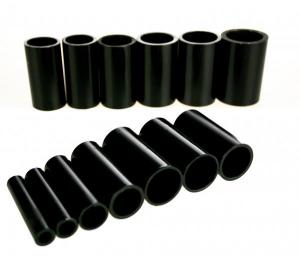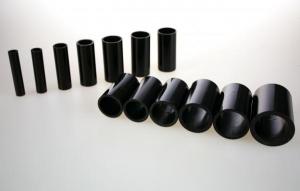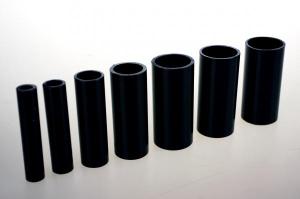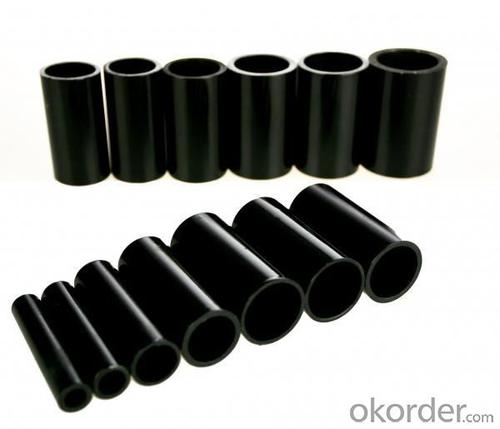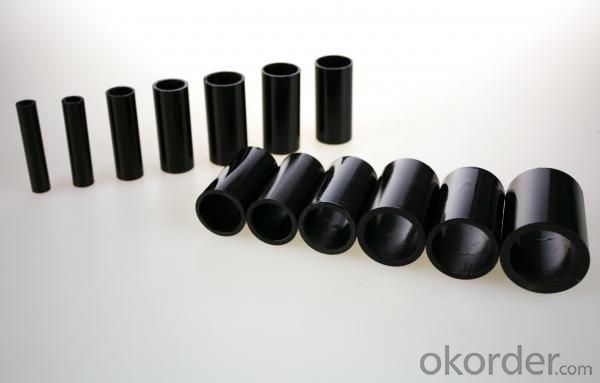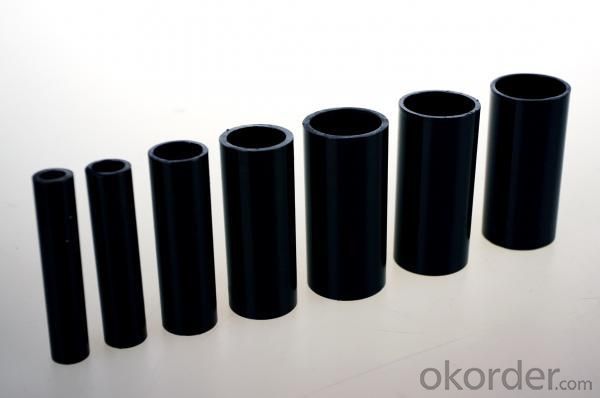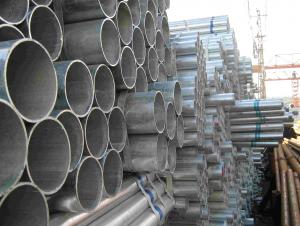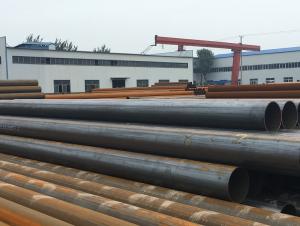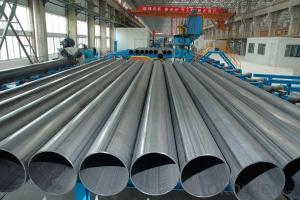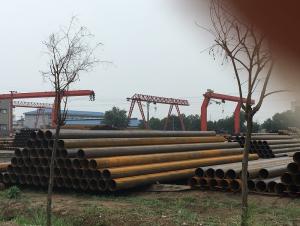Seamless Steel Tubes For Elevated Temperatures
- Loading Port:
- China Main Port
- Payment Terms:
- TT or LC
- Min Order Qty:
- 20MT m.t.
- Supply Capability:
- 5000 Tons Per Month m.t./month
OKorder Service Pledge
OKorder Financial Service
You Might Also Like
Specifications of Seamless Steel Tubes for Elevated Temperatures:
Standard:
DIN17175: Seamless Steel Tubes for Elevated Temperatures.
EN 10216-2: Seamless steel tubes for pressure purposes - Technical delivery conditions - Part 2: Non-alloy and alloy steel tubes with specified elevated temperature properties.
Size (mm):
Outer Dimensions: 3.0mm ~ 114.0mm
Wall Thickness: 0.5mm ~ 10 mm
Length: max 13000mm
Steel grade: DIN17175(St35.8, St45.8, 15Mo3, 13CrMo44, 10CrMo910), EN10216-2(P195GH, P235GH, P265GH, 13CrMo4-5, 10CrMo9-10).
Packing: Bare/bundles/crates/crate protection at the both sides of tubes or as per customers' requirements .
Painting: as requested.
DIN17175:Chemical Compositions(%)
Grade | C | Si | Mn | P | S | Cr | Mo |
St35.8 | ≤0.17 | 0.10-0.35 | 0.40-0.80 | ≤0.040 | ≤0.040 | / | / |
St45.8 | ≤0.21 | 0.10-0.35 | 0.40-1.20 | ≤0.040 | ≤0.040 | / | / |
15Mo3 | 0.12-0.20 | 0.10-0.35 | 0.40-0.80 | ≤0.035 | ≤0.035 | / | 0.25-0.35 |
13CrMo44 | 0.10-0.18 | 0.10-0.35 | 0.40-0.70 | ≤0.035 | ≤0.035 | 0.70-1.10 | 0.46-0.65 |
10CrMo910 | 0.08-0.15 | ≤0.50 | 0.40-0.70 | ≤0.035 | ≤0.035 | 0.20-0.25 | 0.90-1.20 |
DIN17175: Mechanical Properties
Grade | Yield Strength (Mpa) | Tensile Strength (Mpa) | Elongation(%) |
St35.8 | ≥235 | 360-480 | 25 |
St45.8 | ≥255 | 410-530 | 21 |
15Mo3 | ≥275 | 450-600 | 20 |
13CrMo44 | ≥290 | 440-590 | 20 |
10CrMo910 | ≥280 | 450-600 | 18 |
EN10216-2: Chemical Compositions(%)
Grade | C ≤ | Si ≤ | Mn ≤ | P ≤ | S ≤ | Cr ≤ | Mo ≤ | Cu ≤ | Ni ≤ |
P195GH | 0.13 | 0.35 | 0.70 | 0.025 | 0.020 | 0.030 | 0.08 | 0.30 | 0.30 |
P235GH | 0.16 | 0.35 | 1.20 | 0.025 | 0.020 | 0.030 | 0.08 | 0.30 | 0.30 |
P265GH | 0.20 | 0.40 | 1.40 | 0.025 | 0.020 | 0.030 | 0.08 | 0.30 | 0.30 |
13CrMo4-5 | 0.10-0.17 | 0.35 | 0.40-0.70 | 0.025 | 0.020 | 0.70-1.15 | 0.4-0.6 | 0.30 | 0.30 |
10CrMo9-10 | 0.08-0.14 | 0.50 | 0.30-0.70 | 0.025 | 0.020 | 2.00-2.50 | 0.9-1.1 | 0.30 | 0.30 |
EN10216-2: Mechanical Properties
Grade | Yield Strength (Mpa) | Tensile Strength (Mpa) | Elongation(%) | Elongation (%) |
P195GH | ≥195 | 320-440 | 27 | 25 |
P235GH | ≥235 | 360-500 | 25 | 23 |
P265GH | ≥265 | 410-570 | 23 | 21 |
13CrMo4-5 | ≥290 | 440-590 | 22 | 20 |
10CrMo9-10 | ≥280 | 480-630 | 22 | 20 |
Usage/Applications:
It is used for the pipelines of boiler industry.
Packaging & Delivery:
Each bundles pipes will be bundled with 6-8 pcs steel strips and with shipping marks and 2 nylon strips
40-50 days delivery on china port upon receiving original LC or prepayment.
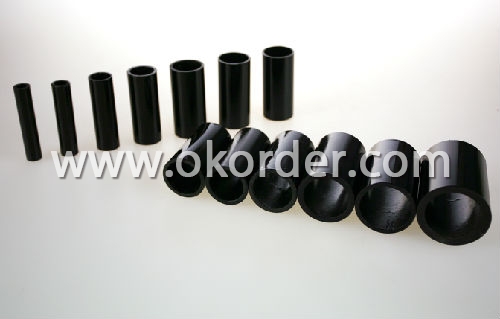
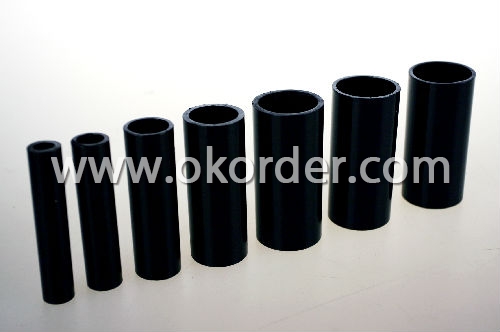
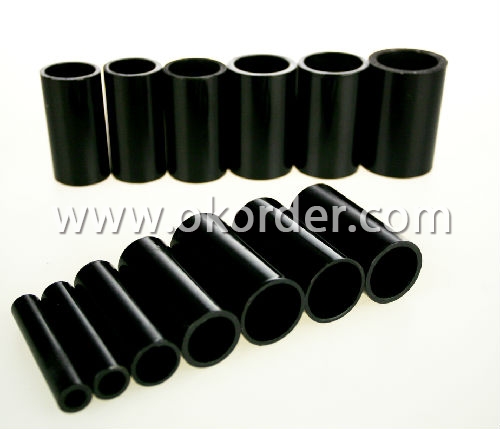
- Q: What is the role of steel pipes in the telecommunications industry?
- Steel pipes play a crucial role in the telecommunications industry as they are used for the installation of underground and overhead telecommunication cables. These pipes provide protection and support to the cables, ensuring their safety and longevity. Additionally, steel pipes are also used in the construction of communication towers and infrastructure, making them an essential component in establishing and maintaining reliable telecommunications networks.
- Q: How are steel pipes used in the manufacturing sector?
- Steel pipes are commonly used in the manufacturing sector for various purposes, such as transporting fluids and gases, providing structural support, and facilitating the flow of materials in manufacturing processes. They are used in industries like construction, oil and gas, automotive, and aerospace for applications such as pipelines, machinery, conveyors, and infrastructure. Steel pipes offer durability, strength, and resistance to corrosion, making them an ideal choice for many manufacturing needs.
- Q: What are the different methods of testing steel pipes?
- There are several methods of testing steel pipes, including visual inspection, ultrasonic testing, magnetic particle testing, liquid penetrant testing, radiographic testing, and hydrostatic testing. Each method serves a specific purpose in evaluating the quality and integrity of steel pipes, ensuring they meet industry standards and are suitable for their intended applications.
- Q: Can steel pipes be used for underground applications?
- Yes, steel pipes can be used for underground applications. They are commonly used for underground piping systems in various industries such as water, oil, and gas. The durability and strength of steel make it suitable for withstanding underground conditions, providing reliable and long-lasting performance.
- Q: What are the environmental impacts of steel pipe production?
- The environmental impacts of steel pipe production include carbon dioxide emissions from the extraction and processing of raw materials, such as iron ore and coal, as well as the energy-intensive manufacturing process. Additionally, the production of steel pipes can contribute to air and water pollution through the release of pollutants and waste materials. The extraction and transportation of raw materials may also result in habitat destruction and disruptions to ecosystems.
- Q: How are steel pipes protected against underground corrosion?
- Steel pipes are typically protected against underground corrosion through various methods such as coating the pipes with corrosion-resistant materials like epoxy or polyethylene, cathodic protection using sacrificial anodes or impressed current systems, and regular inspection and maintenance to detect and address any signs of corrosion.
- Q: What are the dimensions of a standard steel pipe?
- The dimensions of a standard steel pipe can vary depending on its intended use, but common dimensions include a nominal size (such as 1/2 inch, 1 inch, 2 inches, etc.) and a schedule number indicating its wall thickness (such as Schedule 40 or Schedule 80). The outside diameter of the pipe can range from small sizes of less than half an inch to large sizes of several feet. The length of a standard steel pipe is typically 21 feet, although shorter lengths are also available.
- Q: What is the cost of steel pipes compared to other materials?
- The cost of steel pipes is generally higher compared to other materials due to its durability, strength, and versatility. However, it provides excellent long-term value and is often preferred for its reliability and resistance to corrosion, making it a worthwhile investment for various applications.
- Q: Can steel pipes be used for irrigation pumps?
- Yes, steel pipes can be used for irrigation pumps. Steel pipes are commonly used in irrigation systems due to their durability, strength, and resistance to corrosion. They are ideal for transporting water from the pump to the irrigation system, ensuring efficient water distribution for agricultural purposes.
- Q: Are steel pipes resistant to chemicals and corrosion?
- Yes, steel pipes are generally resistant to chemicals and corrosion. Steel pipes are often coated with protective layers such as zinc or epoxy to enhance their resistance to corrosion. These coatings act as a barrier, preventing chemicals from coming into direct contact with the steel and reducing the risk of corrosion. Additionally, steel itself has inherent corrosion-resistant properties, making it a suitable material for many applications where exposure to chemicals and corrosive elements is common. However, it is important to note that the level of resistance may vary depending on the specific type of steel, the coating used, and the specific chemicals or corrosive substances involved. Therefore, it is advisable to consult with experts and consider the specific requirements of the intended application to ensure the appropriate choice of steel and protective measures are taken to maximize resistance to chemicals and corrosion.
1. Manufacturer Overview
| Location | Wuxi, China |
| Year Established | 1991 |
| Annual Output Value | 300,000Tons |
| Main Markets | Europe; Southeast Asia; etc. |
| Company Certifications | API 5L;API 5CT;API Q1;ISO/TS29001 |
2. Manufacturer Certificates
| a) Certification Name | |
| Range | |
| Reference | |
| Validity Period |
3. Manufacturer Capability
| a) Trade Capacity | |
| Nearest Port | Wuxi; Shanghai |
| Export Percentage | 41% - 50% |
| No.of Employees in Trade Department | 3900-4000 People |
| Language Spoken: | English; Chinese; Spanish |
| b) Factory Information | |
| Factory Size: | Above 450,000 square meters |
| No. of Production Lines | Above 10 |
| Contract Manufacturing | OEM Service Offered;Design Service Offered |
| Product Price Range | Average |
Send your message to us
Seamless Steel Tubes For Elevated Temperatures
- Loading Port:
- China Main Port
- Payment Terms:
- TT or LC
- Min Order Qty:
- 20MT m.t.
- Supply Capability:
- 5000 Tons Per Month m.t./month
OKorder Service Pledge
OKorder Financial Service
Similar products
Hot products
Hot Searches
Related keywords
